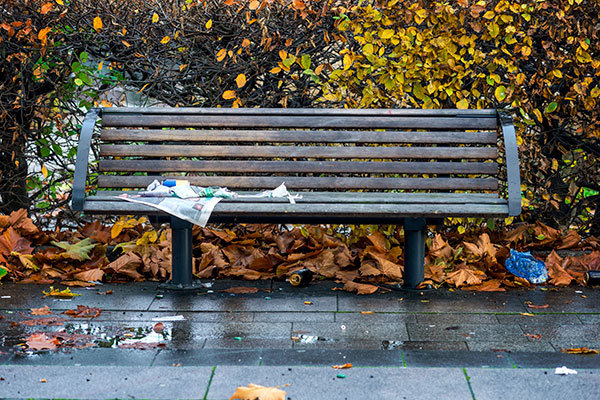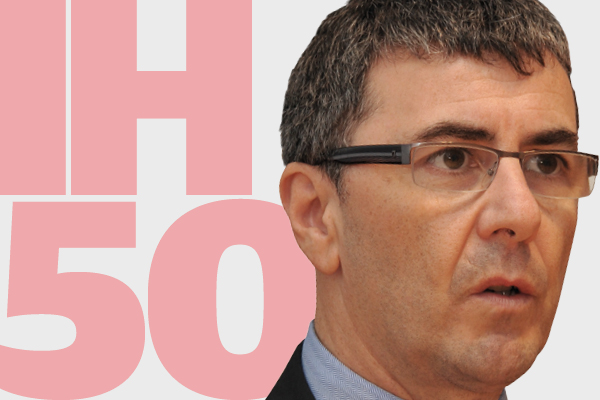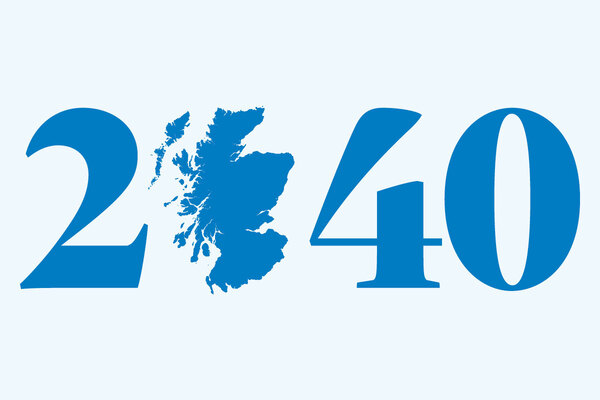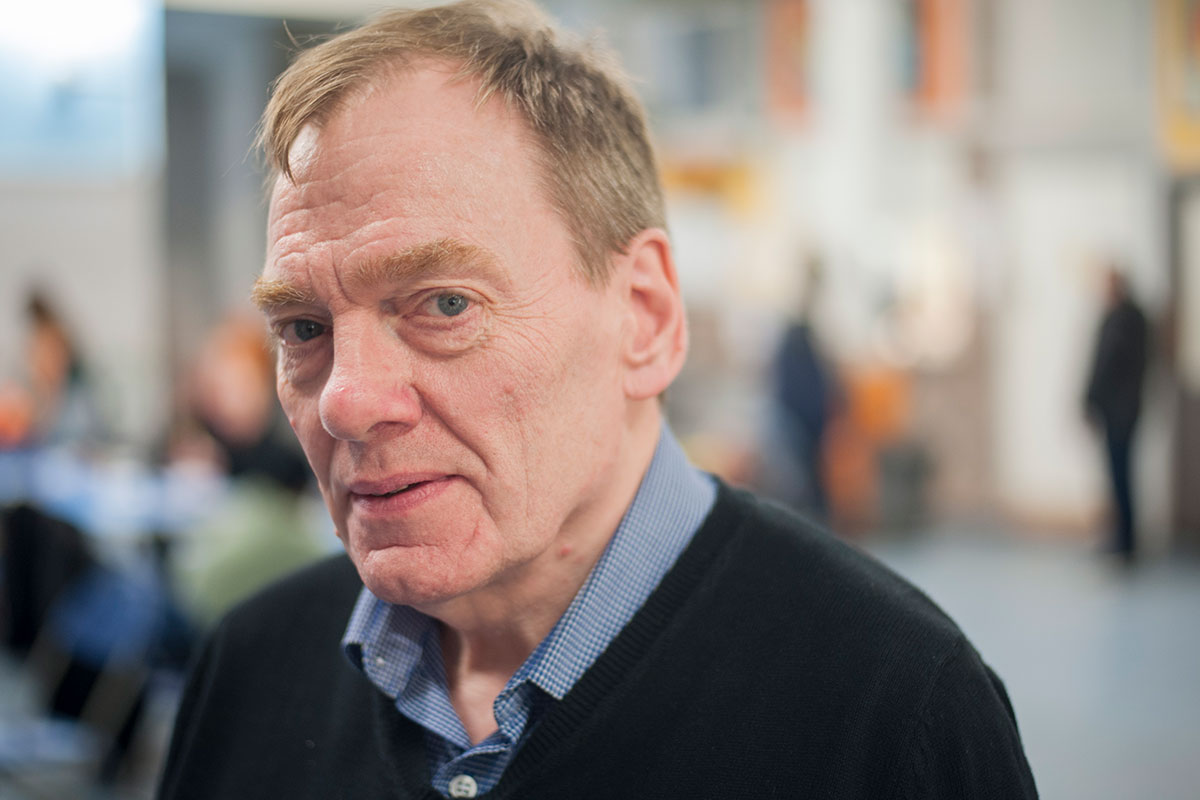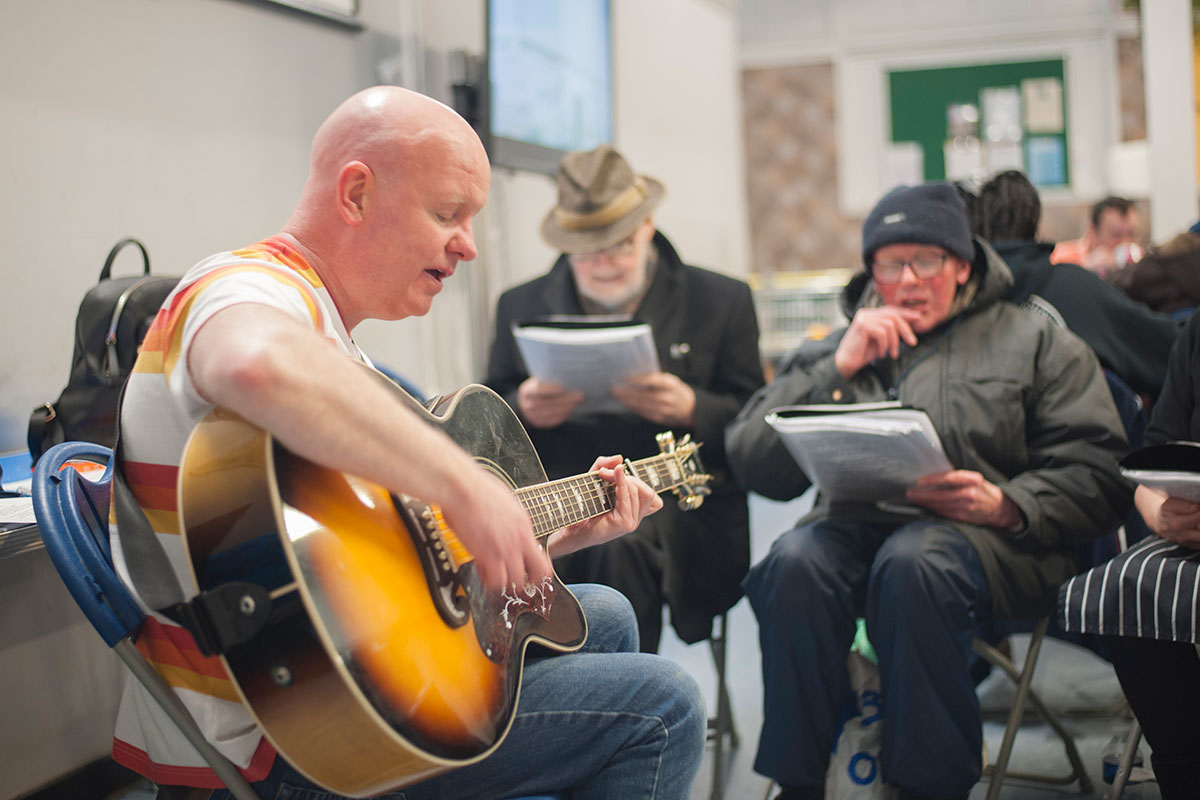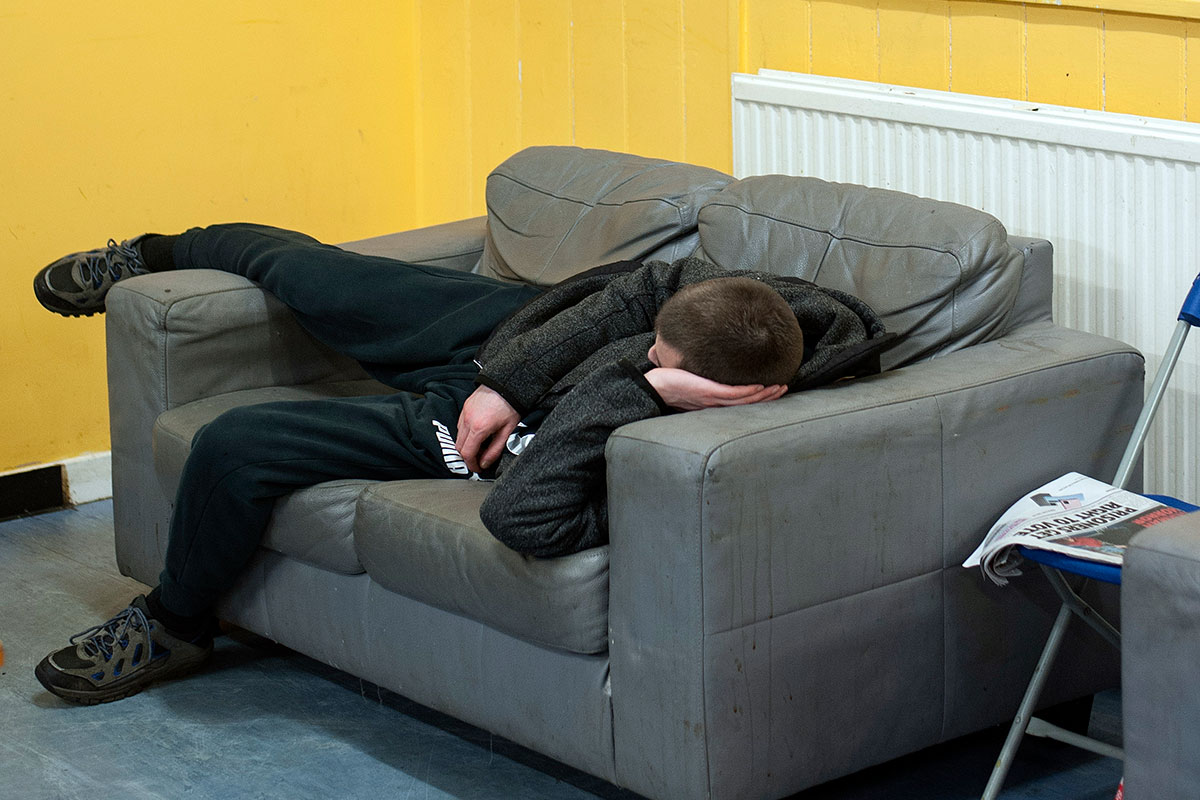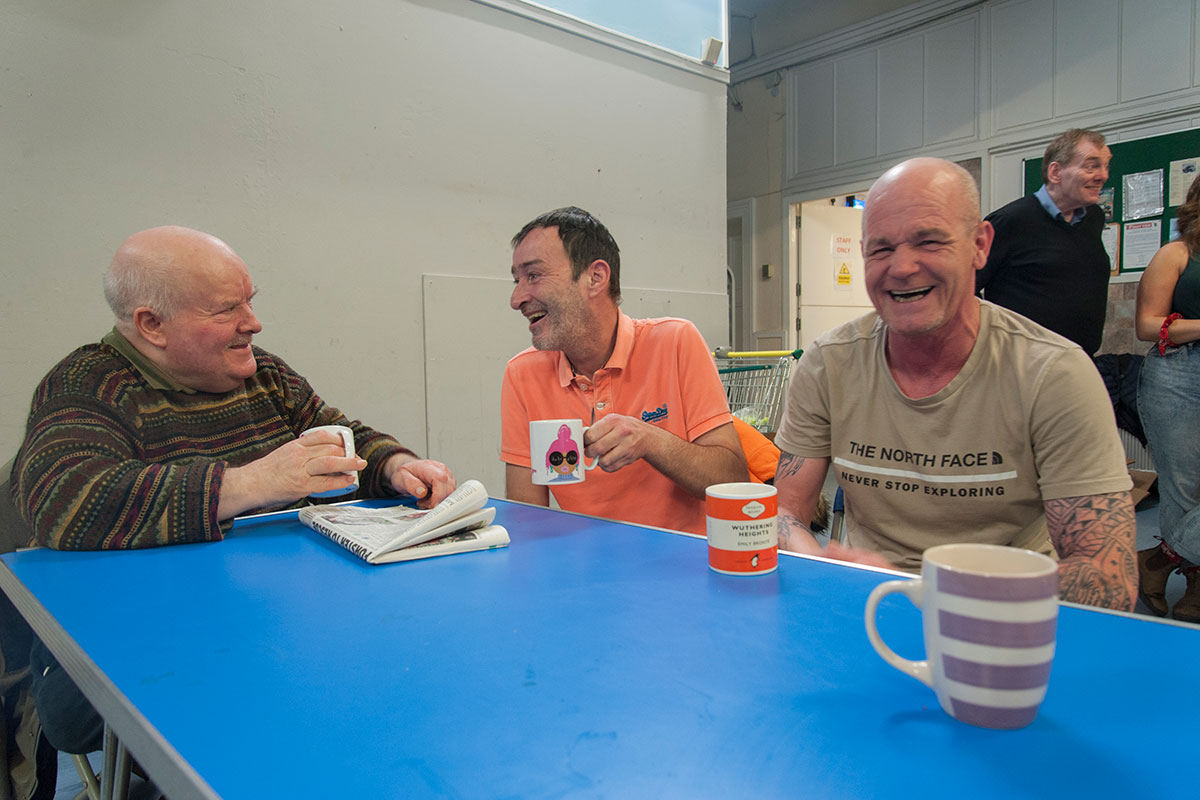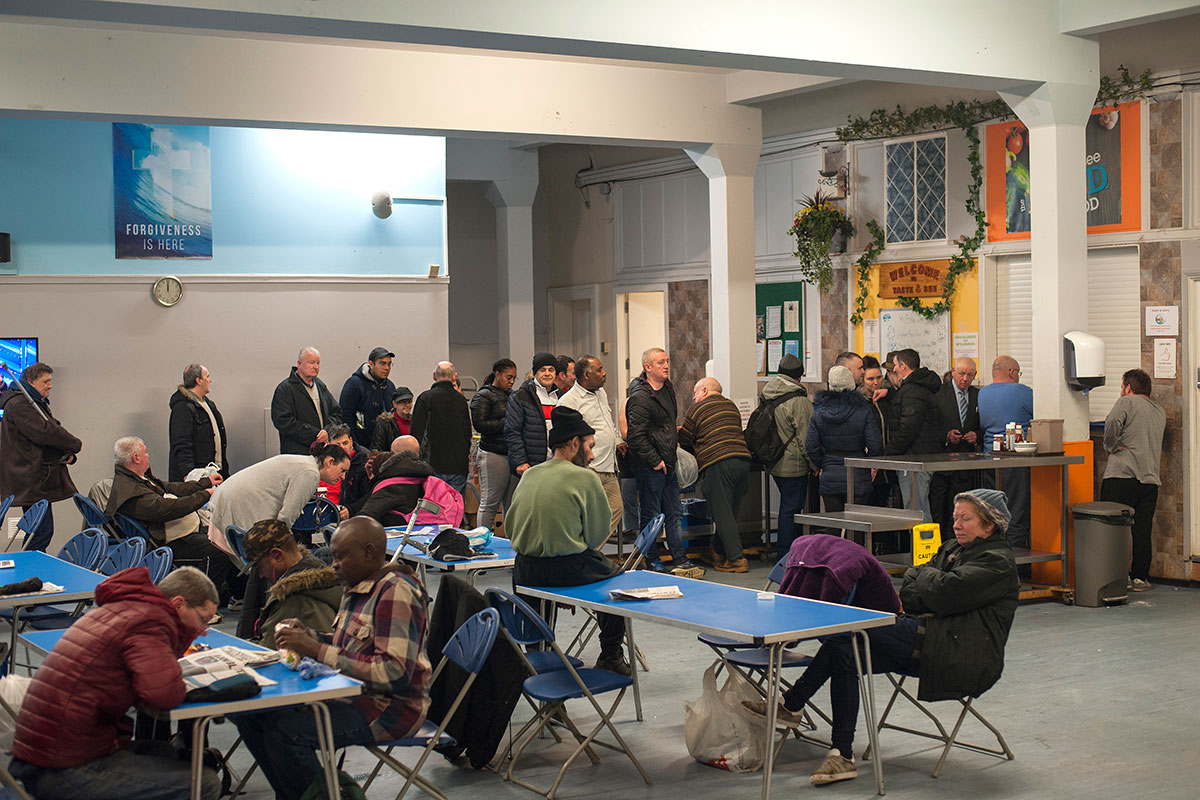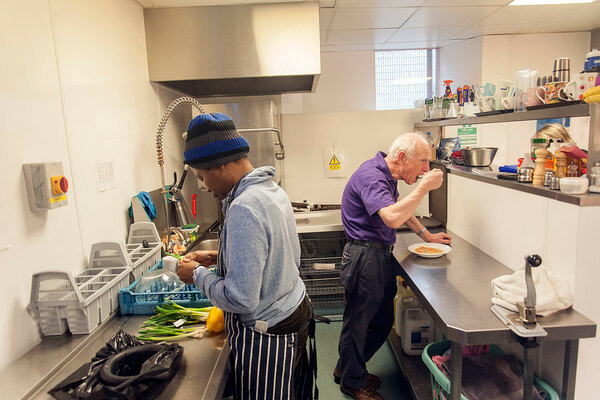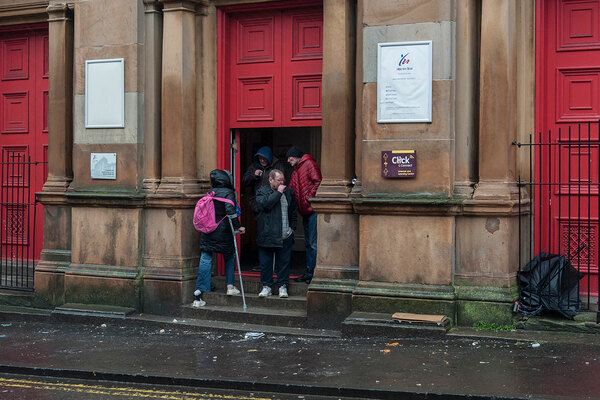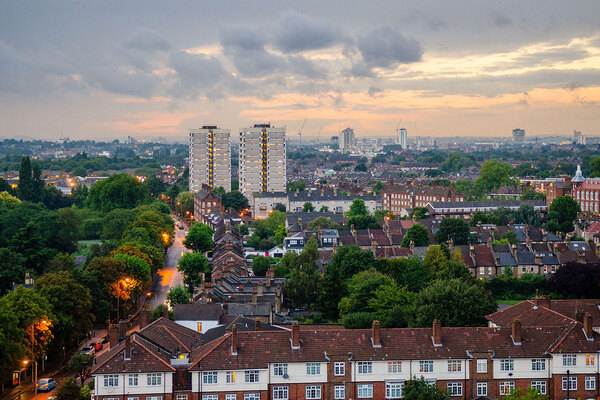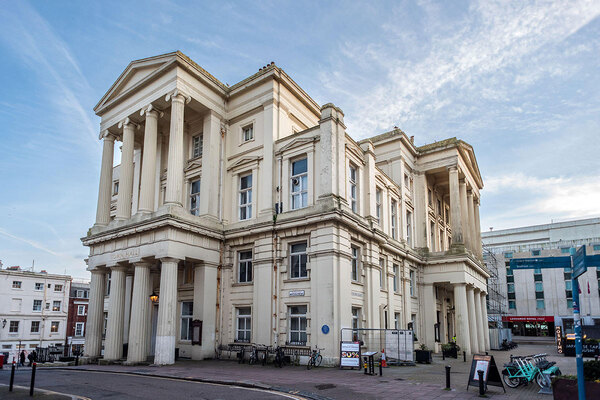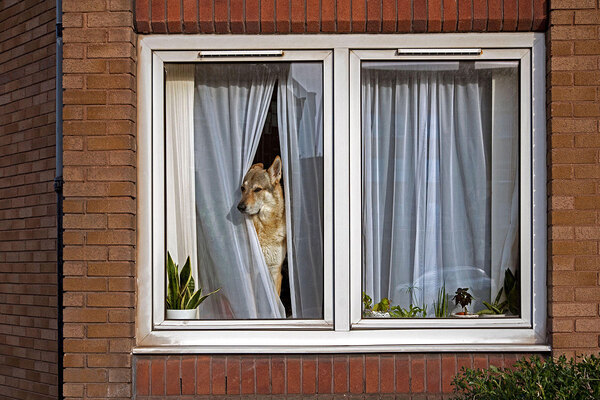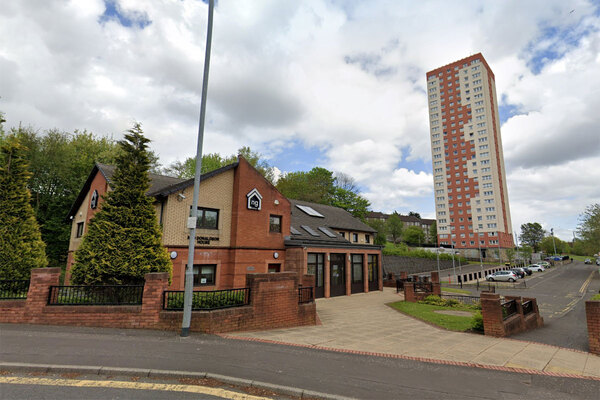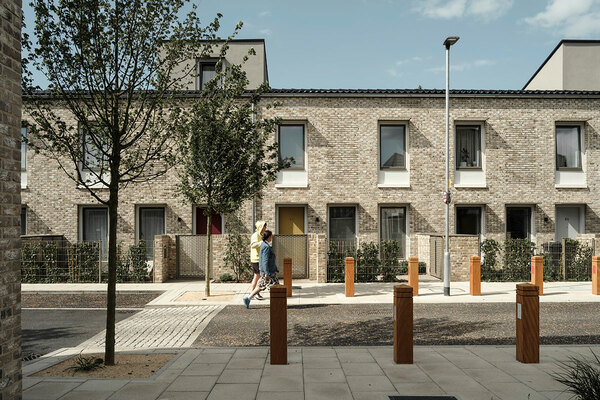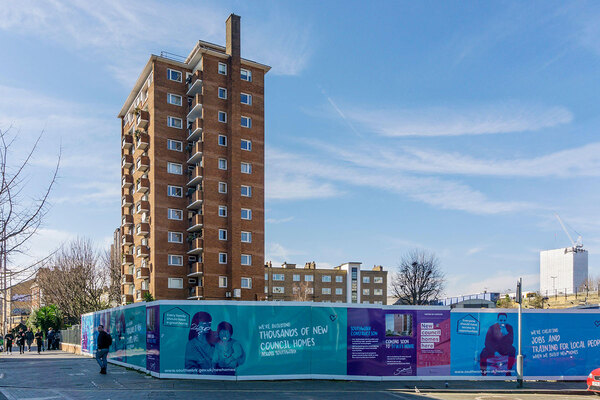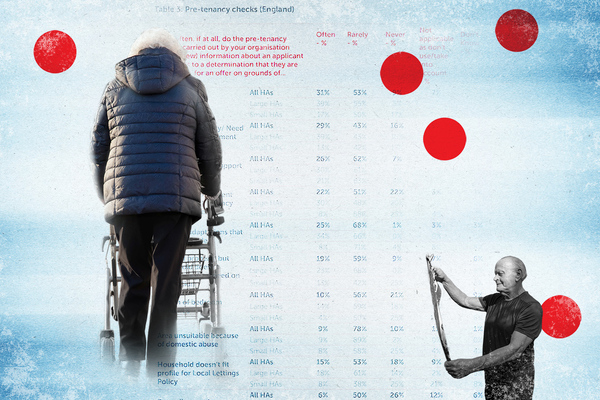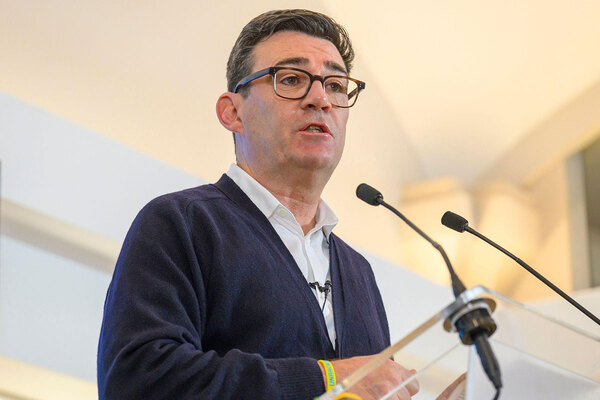You are viewing 1 of your 1 free articles
Why Glasgow Council is routinely breaking the law on homelessness
Despite Scotland having progressive legislation for housing homeless people, Glasgow Council is failing many in its duty to find them accommodation. Lucie Heath finds out more. Photography by Martin Hunter
“The legislation for homelessness in Scotland is progressive and probably the best in the world,” says Stephen Mitchell, manager at the Lodging House Mission, a day centre for homeless and vulnerable people in Glasgow.
This is a phrase you often hear when talking to housing professionals in Scotland. They are not necessarily wrong. In 2012 the government took the decision to abolish ‘priority need’. This means councils in Scotland must find housing for anyone who becomes homeless through no fault of their own. Typically in England, only families with children or multiple support needs have this right.
Do homeless people in Scotland have the best rights in the world? “I think that’s a load of bollocks”
Yet despite these changes, on the other side of Mr Mitchell’s office door is a room full of people requiring the mission’s support. Some of them will have spent the night sleeping upstairs at the winter night shelter, which is full almost every night throughout the winter months.
Robert McLelland comes regularly to the mission, which sits across the road from the city’s famous Barras Market. He tells Inside Housing he has been homeless for 20 years and has been stuck in temporary accommodation for the past five.
Does he think homeless people in Scotland have the best rights in the world?
“I think that’s a load of bollocks,” he replies, with a defeated sigh. “All you have to do is walk under central bridge now and you’ll see people in tents.” He says the rough sleeping problem in Glasgow is much worse now than it was when he first became homeless in the late 1990s.
In a way, Mr McLelland’s comments are not surprising. While the Scottish government laps up praise for its policies on homelessness, Glasgow City Council has faced a barrage of criticism over how it runs its homelessness service.
Much of the attention has focused on Glasgow’s continued failure to find temporary accommodation for those who become homeless. Official statistics show that Glasgow broke the law by refusing individuals temporary accommodation a staggering 3,365 times in 2018/19. A similar number of refusals were recorded in 2017/18, when the government began publishing these numbers.
“The council has been breaching its legal duties so frequently that it’s starting to call into question the purpose of legal duties at all”
These figures have attracted the attention of both the Scottish Housing Regulator (SHR) and campaigners. In December, the SHR announced it was launching an official inquiry into the council’s homelessness service, following several years of intervention in the local authority. Shelter Scotland also announced that it was planning to take the council to court over its failure to accommodate.
“Glasgow City Council’s homelessness service is buckling at the weight,” says Gordon MacRae, head of communications and policy at the charity. “There’s not been a sufficient transition to a post-priority need world and the council has been breaching its legal duties so frequently that it’s starting to call into question the purpose of legal duties at all.”
In response, a council spokesperson tells Inside Housing: “Unfortunately, there have been some instances where we’ve been unable to offer people temporary accommodation immediately and we accept that our services need to evolve to cope with increasing demand.”
Manager Stephen Mitchell (above) thinks the council pulled the “rug out too quickly” from its supported services to focus on Housing First
The challenges facing Glasgow’s homelessness service are complex. As Scotland’s largest city, the authority deals with a disproportionate amount of the country’s homeless people. The city is also facing a huge drug crisis, with recent figures showing Scotland has the highest rate of drug-related deaths within the EU, the highest concentration of which are in Glasgow. According to the council, the introduction of Universal Credit has also placed “increasing pressure” on the city’s homelessness department.
Glasgow does not own any housing stock of its own, having transferred its homes in 2003 to Glasgow Housing Association, now part of Wheatley Group. This means it has to work with more than 60 local housing associations to discharge its statutory duty to house homeless people.
A 2018 report from the regulator laid out how the council was failing to manage these relationships. It found associations refused 14% of the homelessness referrals sent to them by the council in the first half of 2017/18, some of which were due to the applicant having a history of rent arrears. It also said the council was not making enough referrals in the first place.
Yet an analysis of these problems does not necessarily explain why Scotland’s laws, supposedly the gold standard in homelessness legislation, don’t seem to make a dent in Glasgow’s problem. Almost a decade after priority need was abolished by the government, why does the country’s largest authority continue to break the law at a rate of roughly 10 times per day?
One obvious answer is that Glasgow’s homelessness department does not have the resources to meet the duties being placed on it. In May last year, the council hit the headlines when it announced it was cutting £2.6m from third-sector organisations that provide temporary accommodation for homeless people in the city, thus reducing the number of beds available by 68 (7%). In its defence, the council has said that this money is being repurposed for Housing First, the much-heralded housing and support service for rough sleepers that is being piloted across five Scottish cities. Since September 2018, 102 homeless people have secured homes through Housing First, 92% of whom have sustained their tenancy so far.
“Independent of each other these are good things, but it’s worrying when you’re looking at it from the perspective of people who rely on these services”
However, Lodging House Mission’s Mr Mitchell says the council “pulled the rug out too quickly” from its supported housing services and labels the decision to redirect resources to Housing First “long-term thinking done quickly”.
This is echoed by Mr MacRae: “Independent of each other these are good things, but it’s worrying when you’re looking at it from the perspective of people who rely on these services. It’s worrying to see how we can have confidence in the council to transition to yet another new system when they’ve not yet transitioned to the existing set of circumstances.”
Glasgow’s decision to cut temporary accommodation funding has ignited tensions between the council and government, both of which are controlled by the Scottish National Party. Through a series of letters, released under Freedom of Information Act requests to the Scottish Tenants Organisation last year, Scottish housing minister Kevin Stewart expressed concern that the council was reducing bed spaces “at a time when there is a concerted national effort to end homelessness”.
Yet questions have also been raised over whether the government is backing its policy ambitions with appropriate levels of funding. Gavin Yates, chief executive at Homeless Action Scotland, points out that the draft Budget published by the government earlier this month included no new money for homelessness.
“Never judge a politician by what they tell you – look at their budget,” he says. “If we want councils to deliver on the ground for vulnerable people it has to be funded.”
“This is individuals’ legal rights to safe, secure homes being refused on an industrial scale”
Mr Stewart says Housing First is being funded through an additional £50m Ending Homelessness Fund, introduced by the government in 2017.
He adds: “We have ensured our partners in local government receive a fair funding settlement that supports vital public services – including homelessness duties.”
However, Mr MacRae criticises the government for not taking Glasgow’s law breaches seriously enough. In July last year, the government announced it was entering into a voluntary review with the council. The government says this is ongoing, however Inside Housing understands it is not planning to publish the results.
“I’m not sure that everyone in charge grasps that this is a legal duty,” Mr MacRae says. “This isn’t a target, this is individuals’ legal rights to safe, secure homes being refused on an industrial scale.”
The difference between laws and targets is that systems include checks and balances to ensure the former are not broken. Before matters reach the courts, the regulator should ensure laws and standards are being upheld.
However, some complain that the SHR’s response to Glasgow has not been strong enough. In Scotland, the regulator has a variety of statutory powers, which include serving an enforcement notice and putting in place a special manager. To date, the regulator has never used these powers within any council in Scotland.
“A problem is that the regulator does not have the power and authority to take on councils – the big guns,” Mr Yates says.
He adds: “If a local authority is not upholding the law in terms of its education provision or in other ways, there are agencies that will come down on them, quite rightly, like a tonne of bricks.”
Michael Cameron, chief executive of the SHR, says: “I’m confident that we have an effective approach to regulation… We will give consideration as to whether we need to use our statutory powers when we have the full set of evidence in front of us from this inquiry.”
The situation in Glasgow may seem disheartening for those who campaign for greater rights for homeless people. What is the point in having the best legislation in the world if it can so easily be ignored?
The kitchen at Lodging House Mission
However, without Scotland’s laws, it is unlikely we would even be talking about this issue. Ultimately, the council is receiving negative attention for doing something that councils in the rest of the UK do every day: telling homeless people there is not enough temporary accommodation for them.
One result of this criticism has been the announcement that the council is launching an ‘Alliance to End Homelessness’. The first of its kind in the UK, the alliance will see the council work in partnership with other third-sector organisations to make financial and operational decisions in relation to the provision of homelessness services.
What the glacial pace of change in Glasgow does show, however, is that the campaigning does not stop when the bill is passed. The regulator’s investigation continues and Shelter’s legal action – currently on pause – may still follow.
Mr MacRae remains confident that the pressure will eventually result in change: “We think that with the right approach, the right leadership and the right political will, the situation can be turned around.”
Until it does, the consequences will continue to be felt on the streets of Glasgow.
“People become disillusioned, people won’t even present,” says Mr Mitchell. “If you look on official websites you’ll find somewhere what your entitlements are, but how helpful is that to people on the streets?”
Mr McLelland says the majority of homeless people he meets at the centre are not aware of the rights they have. He himself has “given up” on going to the council.
“I don’t have that many years left of my life,” he says. “My whole life has been institutionalised and I want somewhere where I can rest my head and say this is mine. That’s what most people want.”
Sign up for our daily newsletter
Already have an account? Click here to manage your newsletters
Related stories

